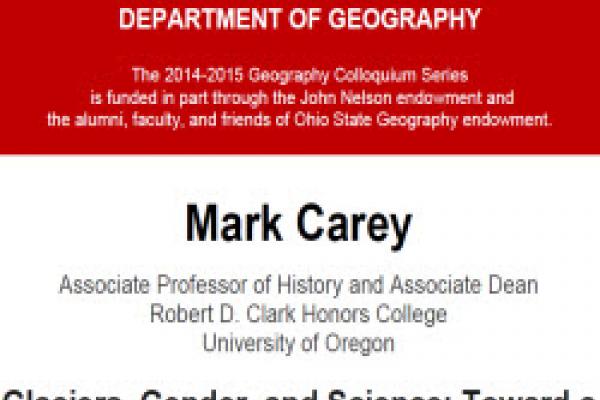
Mark Carey Associate Professor, History & Associate Dean Honors College, Univ. of Oregon to present the Geography Colloquium on Feb. 27'th![]() Glaciers, Gender, and Science: Toward a Feminist Glaciology [pdf]
Glaciers, Gender, and Science: Toward a Feminist Glaciology [pdf]
Everyone knows that glaciers have become icons of global climate change—that ice cores and glacier measurements have provided critical baseline data for understanding climate history going back 800,000 years, as well as yielding clearly-visible evidence of climate change in the present as glaciers shrink. But what does gender have to do with any of this? It turns out a lot, as his presentation will show. From the heroic men studying Antarctic ice to the manly mountaineers measuring glaciers, and the dedicated Coast Guard experts bombing icebergs in the North Atlantic, glaciological knowledge and human-glacier interactions have been influenced by gender, historically and right up to the present. Men and women are also affected differently by glacier retreat, whether their vulnerability to glacial lake outburst floods or through their representations of ice through art and literature. The “feminist glaciology” approach proposed in this talk offers new ways to think about ice, a fresh understanding of the history of glaciology and cryospheric sciences, and a framework for approaching social research on climate and global environmental change.
